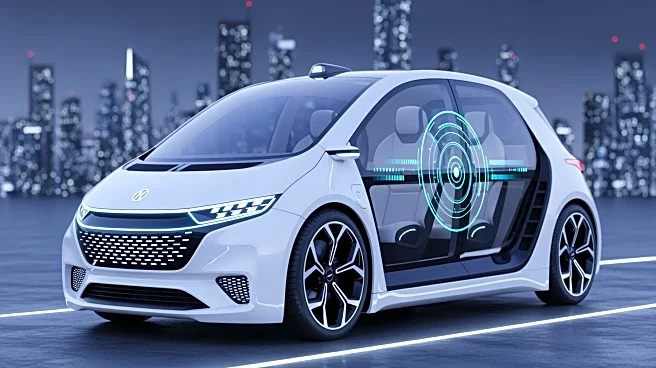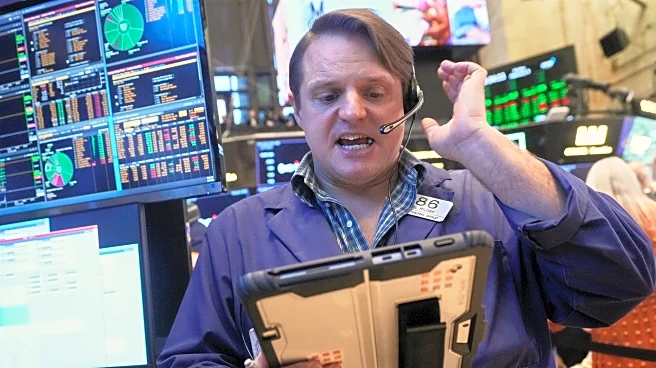What's Happening?
Tesla CEO Elon Musk announced that the company will begin production of the Cybercab, an autonomous electric vehicle, in April at its Austin, Texas factory. The Cybercab is designed for full self-driving
without pedals or a steering wheel, optimized for low-cost autonomous operation. Musk's announcement follows the approval of a compensation package for him potentially worth $1 trillion in company shares. Despite Tesla's claims, the company has yet to demonstrate its cars' ability to drive autonomously at scale without a safety monitor. Musk's comments conflict with Tesla chairwoman Robyn Denholm, who suggested the Cybercab would include a steering wheel and pedals as a backup. The production line is expected to have a 10-second cycle time, potentially allowing for 2 to 3 million Cybercabs to be produced annually.
Why It's Important?
The introduction of the Cybercab represents a significant step in the evolution of autonomous vehicles, potentially transforming urban transportation and reducing costs per mile. If successful, Tesla's Cybercab could lead to widespread adoption of autonomous vehicles, impacting industries such as transportation, logistics, and urban planning. However, regulatory approval remains a hurdle, as vehicles without standard controls require exemptions from federal regulators. The success of the Cybercab could influence other companies in the autonomous vehicle sector, pushing technological advancements and regulatory changes. Stakeholders in the automotive and tech industries are closely watching Tesla's progress, as it could redefine the future of mobility.
What's Next?
Tesla will need to navigate the regulatory landscape to deploy the Cybercab without traditional controls. Approval from federal regulators is crucial, as seen with other companies like Zoox and General Motors, which have faced challenges in obtaining exemptions. Musk remains optimistic, citing Waymo's efforts in paving the path for autonomous vehicles. The production and deployment of Cybercabs will be closely monitored by industry experts and regulators, with potential implications for urban infrastructure and public transportation systems. Tesla's ability to meet production targets and secure regulatory approval will be key factors in the Cybercab's success.
Beyond the Headlines
The Cybercab's development raises ethical and legal questions about the future of autonomous vehicles, including safety standards and liability in the event of accidents. The shift towards driverless technology could lead to significant changes in employment within the transportation sector, affecting jobs related to driving and vehicle maintenance. Additionally, the widespread adoption of autonomous vehicles may influence urban design, with potential reductions in traffic congestion and changes in parking infrastructure. As Tesla pushes forward, the broader societal impacts of autonomous technology will continue to be a topic of discussion.











